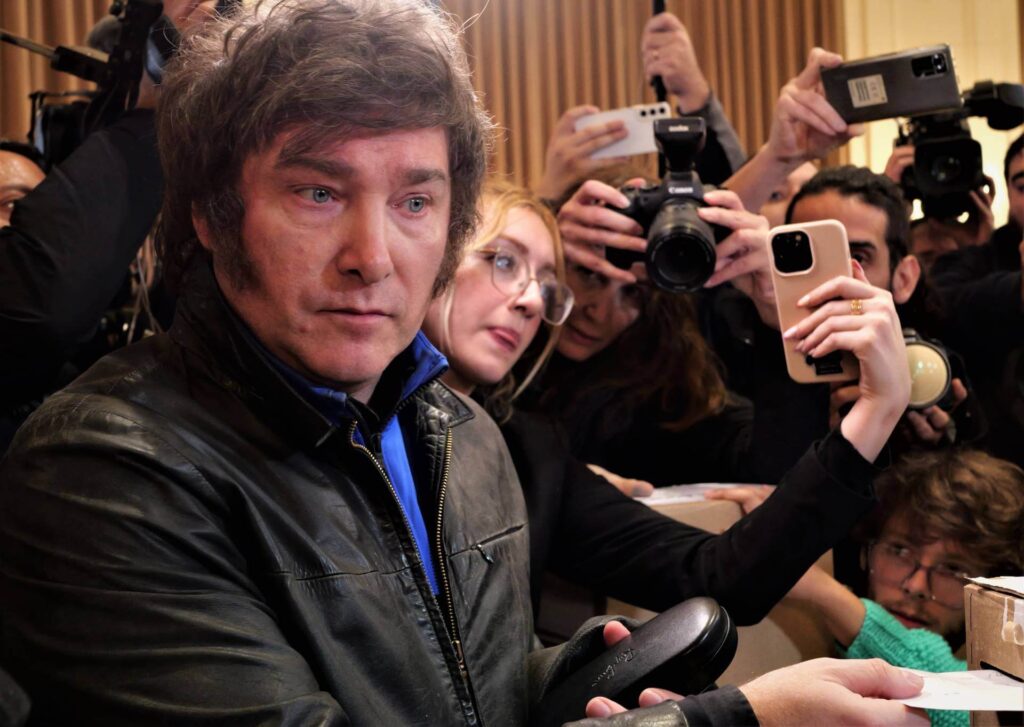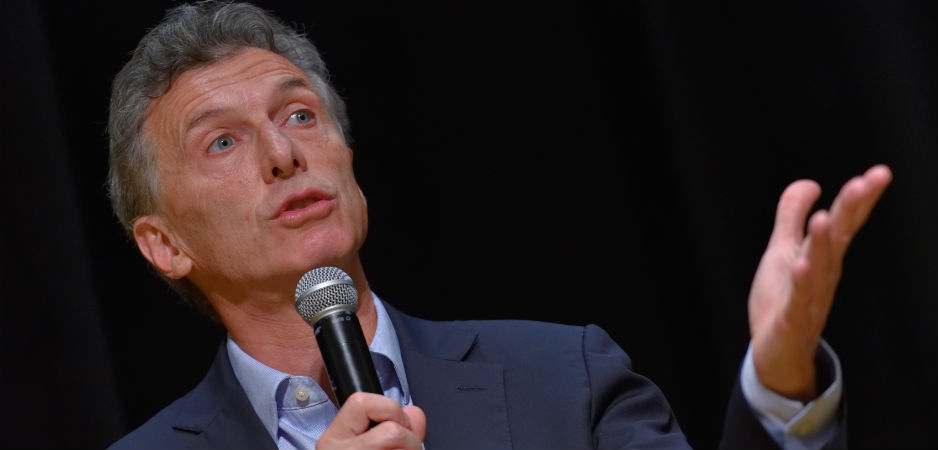On October 22, Argentineans voted to elect a new president, as well as half of the Chamber of Deputies, one-third of the Senate and a few provincial governors. The candidate of the ruling Peronist coalition Unión por la Patria, Minister of Economy Sergio Massa, won the most votes, 36.69%. The runner-up was the libertarian economist and right-wing outsider Javier Milei, the candidate of La Libertad Avanza, who took 29.9%. Patricia Bullrich, the candidate of the center-right coalition Juntos por el Cambio, came in third with 23.84%. She was therefore eliminated. Massa and Milei will face each other in a runoff election on Sunday, November 19.
This is Argentina’s tenth consecutive democratic presidential election. 2023 marks the 40th anniversary of the election of President Raúl Alfonsín (1983–1989), the first to be elected since Argentina’s transition to democracy. Prior to this, Argentina had been under a military dictatorship (1976-1983).
The past 40 years have been the longest period of uninterrupted democratic life in the history of Argentina. According to the Bertelsmann Transformation Index’s “Argentina Country Report 2022,” commitment to democratic institutions has persisted over the years, despite some weaknesses in terms of checks and balances.
However, the prospects look gloomy in what should be a year of civic celebration. The economy is in a pitiful condition, and voters are turning to Milei, an unstable personality with extreme views. Many Argentineans are losing faith in established political options and desperate to the point of gambling on a potentially dangerous candidate.
Inflation, radical cuts and the rise of populism
Elections are taking place within a serious economic context. Analysts polled by Argentina’s central bank expect inflation to be a whopping 185% this year. The poverty rate rose above 40% in the first half of 2023. Argentina is unable to stabilize its own currency in the long run or to eradicate the pernicious impact that inflation has on the less-advantaged sectors of society.
These failings are obscuring the achievements of a young democracy that set a global example on other fronts. In the early 1980s, Argentina held remarkable trials of military officers for crimes against humanity committed during the military dictatorship.
It is not surprising, however, that voters are mainly concerned with the economy. So, disenchantment with politics and politicians has brought an anti-establishment candidate to the fore, Javier Milei. He voiced the frustration of millions of Argentineans with his extravagant style and radical rhetoric. Milei rails against exactly what voters are fed up with: inflation and politicians.
Two paradoxical outcomes of the first round
The first round of voting returned some paradoxical outcomes. The most obvious is that the Minister of Economy came in first place while the economy was in ruins.
To understand this, one needs to consider that many factions fall under the great umbrella of Peronism. Massa has made the effort to stress that he does not belong to the discredited faction of Vice President Cristina Fernández de Kirchner. He has tried to give the impression that his government will be a new start. Many voters find this credible because Peronism has shown itself capable of dramatic change in the past. It swung from the center-right governments of Carlos Menem in the 1990s to the center-left governments of first Néstor Kirchner and then Cristina Fernández de Kirchner in the 2000s. In other words, their leadership knows how to accommodate itself to the challenges of the time.
In addition, the prevalence of Peronist political machinery in the densely populated Buenos Aires province cannot be underestimated. Nearly 40% of Argentineans live here. Peronism has deep political roots in the province. In fact, Axel Kicillof, the Peronist governor of Buenos Aires, won reelection on October 22 — despite serious corruption scandals exploding in the province a short time before the election.
Another paradox is the failure of the opposition to beat the incumbent party. The majority of the population (54%) opted for the two main opposition alternatives, but Massa came out on top in the first round.
Why did this happen? The established center-right opposition, Juntos por el Cambio, chose a right-wing candidacy, Patricia Bullrich, in the primary elections. This sidelined the most progressive and moderate voices within the party. In the end, Juntos’s market-oriented policy offer was outdone in the eyes of voters by Milei’s far-right economic agenda and aggressive style. So, right-wing voters split between Bullrich and Milei.
Whatever the outcome, the outlook is not promising
Milei is an uncertain and risky option for the economy, given his extreme and controversial policy proposals. He proposes a libertarian economic program with radical cuts in expenses and taxes as well as extensive deregulation and privatization. His plan to stabilize the economy involves switching Argentinean currency over to the US dollar and closing the central bank.
But the problem goes even further than economic policy. Milei proposes to revise the until-now-unquestioned pillar of Argentine democracy — namely, the military policy based on the historical trials for crimes against humanity. He has claimed that the number of those killed by the dictatorship is greatly exaggerated. Milei threatens to overturn other long-established policy achievements, such as public health and education, as well as recent ones, such as women’s right to safe abortion.
In addition, Milei’s new party has no more than a handful of legislators in each congressional chamber and no provincial governors. In a federal system like Argentina’s, it is hard to imagine Milei could successfully push through a program of radical change without support in the provincial governments, let alone the national legislature. Milei might get partial support from Juntos since he has recently shown openness to rapprochement with the center-right. However, the prospect of collaborating with Milei has already created deep divisions within Juntos. So, institutional conflict and deadlock will be the likely result of a Milei presidency.
If Massa, on the other hand, could claim victory and unite his party, he would enjoy significant institutional resources at both the national and provincial levels. However, he would still need to take unpopular measures given the difficult economic situation.
Either way, stormy skies lie on the Argentine horizon.
[Anton Schauble edited this piece.]
The views expressed in this article are the author’s own and do not necessarily reflect Fair Observer’s editorial policy.
The post Milei Now Faces Massa in the Argentinean Presidential Runoff appeared first on Fair Observer.
from World News - Independent, Nonprofit Media https://ift.tt/apSVqg2 https://ift.tt/gTo8ev0






0 Comments
Online Latest Bangla News, Article - Sports, Crime, Entertainment, Business, Politics, Education, Opinion, Lifestyle, Photo, Video, Travel, National, World.
Emoji